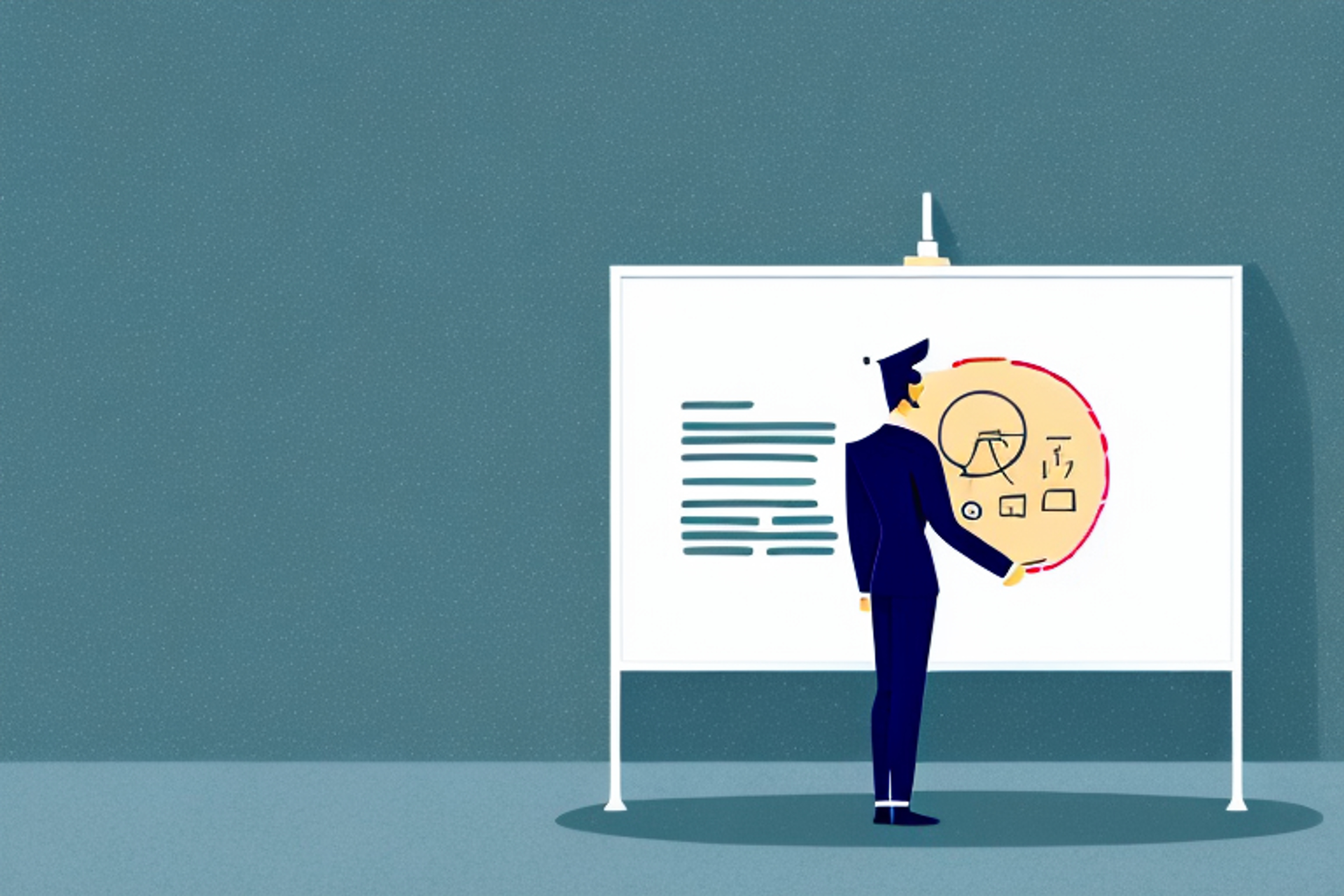What Does a Career Coach Do? And How to Become One
Are you curious about what a career coach does and how to become one? This article will provide you with a comprehensive guide on the role of a career coach, the skills required, and the steps you can take to pursue a career in this field.
Posted June 13, 2025

Table of Contents
If you are feeling unsure about your career path or looking for ways to enhance your professional life, a career coach may be just what you need to get you on the right track. But what exactly is a career coach, and what do they do? In this article, we will explore the role of a career coach in detail and provide tips on how to become one yourself.
What is a Career Coach and Why Might You Need One?
A career coach is a trained professional who helps individuals explore their career aspirations, set goals, and develop strategies for achieving them. They offer guidance and support to help clients navigate the job market, hone their skills, and adapt to changing career trends. By working with a career coach, individuals can gain clarity and direction in their professional lives, build confidence, and make informed decisions about their future.
You may need a career coach if you are feeling stuck in your current role, unsure of your career goals, transitioning into a new field, or simply seeking to grow and develop professionally. A career coach can provide valuable insights, resources, and tools to help you achieve your desired outcomes and overcome any obstacles that may be holding you back.
One of the key benefits of working with a career coach is that they can help you identify your strengths and weaknesses, and develop a plan to leverage your strengths and improve upon your weaknesses. They can also help you identify potential career paths that align with your interests, values, and skills, and provide guidance on how to pursue those paths.
In addition, a career coach can help you improve your job search skills, such as resume writing, networking, and interviewing. They can also provide support and guidance during the job search process, helping you stay motivated and focused on your goals.
The Benefits of Working with a Career Coach
Working with a career coach has numerous benefits. Here are just a few:
- Gain clarity and direction in your career aspirations and goals
- Develop an individualized roadmap for success
- Tap into your unique strengths and talents
- Learn to negotiate and advocate for yourself in the job market
- Enhance your communication and interpersonal skills
- Explore new career paths and opportunities
- Get support in managing work-related challenges and transitions
Additionally, working with a career coach can help you identify and overcome any limiting beliefs or self-doubt that may be holding you back from achieving your career goals. A career coach can provide you with objective feedback and guidance, as well as help you develop a growth mindset that will enable you to approach challenges with confidence and resilience. By working with a career coach, you can gain the tools and strategies you need to succeed in your career and achieve your full potential.
How to Find the Right Career Coach for You
When selecting a career coach, it's essential to find someone who aligns with your goals, personality, and values. Here are some tips for finding the right fit:
- Research career coaches in your area or online
- Consider their experience and qualifications
- Read reviews and testimonials from previous clients
- Book an introductory session to see if you feel comfortable working together
Another important factor to consider when choosing a career coach is their coaching style. Some coaches may use a more directive approach, while others may take a more collaborative approach. It's important to determine which style works best for you and your learning style.
Additionally, it's important to consider the cost of working with a career coach. While investing in your career can be a valuable expense, it's important to ensure that the cost aligns with your budget and financial goals. Some coaches may offer packages or payment plans to make their services more accessible.
What to Expect in Your First Session with a Career Coach
Your first session with a career coach is typically an intake meeting, where you will discuss your career history, goals, and any challenges you are currently facing. Your coach will likely ask you a series of questions to help them understand your career aspirations and personal values. They may also administer assessments to identify your unique strengths and aptitudes.
During this session, you'll work together to create an action plan that outlines your objectives, timelines, and resources necessary to achieve your goals. Your coach will offer feedback, support, and guidance as you begin your journey toward career success.
Tools and Strategies Used by Career Coaches to Help Clients
Career coaches use a variety of tools and strategies to help clients achieve their career goals. Some common techniques include:
- Assessments to identify strengths, motivational drivers, and career-related interests
- Career exploration exercises to help clients identify new areas of interest and job satisfaction
- Networking and job search strategies to help clients find and secure job opportunities
- Skills assessments and development plans to help clients enhance their job-related skills
- Communication and interpersonal skill-building exercises to help clients improve relationships with managers, colleagues, and clients
How Career Coaches Can Help You Identify Your Strengths and Weaknesses
One of the key benefits of working with a career coach is identifying your strengths and weaknesses. By understanding your unique abilities, you can find career paths that align with your strengths and interests. Career coaches use various techniques to help clients identify their strengths, such as aptitude tests, self-assessments, and personality tests. They can also help you identify areas where you may need to improve, such as communication skills, leadership, or time management.
Exploring Different Career Paths: A Key Role of a Career Coach
One of the primary roles of a career coach is to help clients explore different career paths and identify opportunities that align with their values and goals. Career coaches can help you research unique job titles, job descriptions, and qualifications for different roles. From there, they can provide guidance on how to strengthen your candidacy for specific roles, such as earning a certification or further education.
Overcoming Challenges and Obstacles with the Help of a Career Coach
Throughout your career journey, you are likely to face challenges and obstacles that can impede your success. Career coaches can provide support and guidance to help you overcome these hurdles. They can help you address issues such as negative self-talk, lack of confidence, or imposter syndrome. By working through these barriers, you can move forward and achieve your career goals.
Tips and Strategies for Networking and Job Searching with a Career Coach's Assistance
Networking and job searching are often critical components of your career journey. A career coach can provide assistance in these areas by offering guidance on crafting your resume, cover letter, and LinkedIn profile. They can also provide advice on how to search for job opportunities, interview preparation, and salary negotiation. Additionally, career coaches can help you build your professional network by identifying networking events and opportunities in your industry.
How to Launch Your Own Career Coaching Business: Steps to Take
If you are interested in becoming a career coach yourself, here are some steps you can take to launch your own coaching business:
- Obtain specialized training and certifications in career coaching
- Develop a business plan
- Build a website and social media presence
- Develop marketing strategies to attract clients
- Establish pricing and payment structures
The Future of the Career Coaching Industry: Trends to Watch For
The career coaching industry is continually evolving, and new trends are emerging all the time. Some of the trends to watch for include:
- Increased emphasis on digital coaching and remote work
- Focus on diversity, equity, and inclusion in the workplace
- Integration of technology and artificial intelligence in coaching practices
- Maximizing the use of data and analytics to measure coaching effectiveness
Real-Life Success Stories from Individuals Who Worked with a Career Coach
Working with a career coach can be life-changing, as the following real-life success stories from individuals who worked with career coaches demonstrate:
- John, a mid-career professional who wanted to shift from finance to marketing, worked with a career coach to identify his transferable skills and explore new fields. After several months of coaching, John landed a new position in marketing and was thrilled with his newfound career satisfaction.
- Maria, a recent college graduate struggling to find work in her field, worked with a career coach to develop a strategy for standing out in her job search and networking more effectively. With her coach's guidance, Maria was able to secure a new job in her desired field within three months.
- Tom, a successful executive with a five-year plan, worked with a career coach to refine his goals and develop skills that would position him for a promotion. Within a year of coaching, Tom was promoted to C-level management and was thrilled with his new role and added responsibility.
Conclusion
In conclusion, working with a career coach can be a transformative experience that helps you achieve your professional goals and enhance your overall quality of life. Whether you decide to become a career coach yourself or work with one to make your career aspirations come to life, the key is to find a trusted, experienced, and supportive coach who aligns with your values and goals and is committed to helping you succeed.












